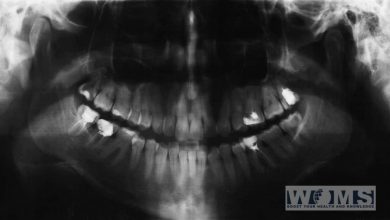Deep Cleaning Teeth

Deep teeth cleaning is a gum therapy to treat various gum diseases. If you don’t brush regularly, it may lead to yellowish teeth. In addition, there will also be an accumulation of plaque and tartar. Plaque and tartar are hard and calcified yellow deposits on gums and teeth. This condition occurs because of the attachment of bacteria with food remnants.
When plaque and tartar accumulate, brushing is not sufficient to remove. Brushing is unable to remove plaque between the tooth surfaces. In addition, tartar is a hard and calcified structure that is difficult to remove with a brush. Plaque and tartar may lead to serious gum and periodontal diseases.
What are the indications of deep cleaning teeth?
There are several gum conditions that require deep teeth cleaning. Some of these indications are as follows:
- Sensitive teeth
- Gum swelling
- Bleeding from gums
- Bruises around gums
- Deep gingival pockets
- Gum recession
- Loose teeth
- Poor oral hygiene
- Family history
- Smoking
- Bad breath
What are the contraindications of the deep cleaning teeth process?
There are also several contraindications of this process. Some of these are as follows:
- Any cardiac or blood disease
- Active chemotherapy and radiotherapy
- Bleeding disorder
- Immuno-compromise diseases
- High risk of infective endocarditis
- Active tuberculosis
- Unstable health condition to perform it
Why do we need to perform deep cleaning teeth?
It is necessary for some conditions. Normally, there is a space of about 3mm between the teeth and gums. Plaque and tartar continue to deposit on the gum and tooth surfaces. These deposits are the main source of bacteria to induce inflammation. These deposits can cause gingivitis and periodontitis.
When gingivitis or periodontitis occurs, these can form large pockets of more than 5mm. Moreover, if the problem doesn’t resolve, these bacterial growths can affect supporting structures and bone covering the teeth. If left untreated, you may lose your teeth because of increased tooth mobility.
What is the difference between deep cleaning teeth and regular cleaning?
There is a difference between deep cleaning teeth and a regular cleaning process. Moreover, both procedures are for different purposes. Let us explore these important procedures to differentiate between them.
Regular cleaning
The regular cleaning procedure is for the maintenance of healthy gums and teeth. In addition, this process is prescribed in patients with no bone loss or any gingival diseases. Moreover, regular cleaning requires only manual scraping to remove any hard deposits.
Deep cleaning teeth
This procedure is for diseased teeth or gums. In addition, deep cleaning teeth clears all the plaque and tartar from the tooth surfaces. Moreover, it also removes the plaque accumulation on the root surfaces. This point is the major difference between regular cleaning and deep cleaning teeth. Hence, deep cleaning teeth involves the cleaning of the teeth and root surfaces.
What is the procedure for deep cleaning teeth?
The procedure starts with your medical and dental history. Your dentist may ask you to perform a dental X-ray according to your oral condition. Dental X-ray is for improved information about your condition. After this, your dentist will assess the depth of gum pockets with periodontal probes. Probing procedures can also determine the status of gingivitis or periodontitis.
There are two visits for this complete procedure. In addition, it is a two-step procedure involving scaling and root planing. Let us highlight these procedures.
Teeth scaling
This procedure involves teeth scaling. It removes all the plaque and tartar from the tooth surfaces. Dentists can do this only using manual scraping. But, he can also use electronic or ultrasonic instruments according to the situation.
Root planing
The next visit involves the procedure of root planning. The root planing involves an instrument required to remove plaque and tartar from root surfaces. In addition, this process smoothens the root surfaces. It also helps to reattach the gum surfaces with teeth. In this way, this procedure minimizes the depth of gum pockets.
After this, your dentist may also perform some additional processes according to the health of gums. These additional procedures include the administration of antimicrobial agents and oral antibiotics.
How to care about your teeth after deep cleaning teeth?
After deep cleaning teeth, you need to take extra care of your teeth. Gums will regrow after the cleaning process and tighten around the teeth. You need to brush and floss regularly to avoid any future deep cleaning teeth. In addition, go for regular cleaning after every six months. These all steps can help you to maintain improved oral health.
What are the potential benefits of deep cleaning teeth?
Deep cleaning teeth provides a lot of benefits. In addition, this procedure can help you to enhance your oral health. Moreover, it can stop various diseases from progressing and developing into fatal diseases. These are some of the important benefits of deep cleaning teeth.
- Stop the progression of various gingival diseases.
- It can also act as a treatment for various infectious diseases.
- This procedure also promotes gum healing around the teeth.
- It also cleans your teeth above and below the gumline.
- This process also works against bad breath due to gingival diseases.
- This procedure also protects your root surfaces from various diseases.
- This process also helps in preventing tooth loss due to mobility.
What are the drawbacks of the deep cleaning teeth process?
This process may cause mild problems for some days. Once the gums heal, there will be no issue. Some of the drawbacks are as follows:
- Slight pain and sensitivity after the procedure
- May cause irritation to the patient
- Gum recession
- There is a mild risk of infection after the process. Antibiotics can reduce the infection rate.
Also Read: Why Are My Teeth Yellow When I Brush Them Everyday?
Summary
Dep Cleaning teeth is required to help one to prevent various gum diseases. It is necessary for some conditions. Normally, there is a space of about 3mm between the teeth and gums. Plaque and tartar continue to deposit on the gum and tooth surfaces. You might also be curious about root canal therapy.
These deposits are the main source of bacteria to induce inflammation. These deposits can cause gingivitis and periodontitis. I hope this article has helped you to know more about the topic.
Frequently asked questions(FAQs)
How much time does it take to heal after deep cleaning?
Deep cleaning teeth remove the plaque and tartar from the tooth and root surfaces. Once it is removed, gums heal around the tooth surfaces. Complete gum healing requires almost 4 to 5 days. Moreover, gums cover the spaces and tighten around the teeth.
Is a deep cleaning teeth process necessary?
If there are huge deposits of plaque and tartar, you just need to go through this process. Otherwise, plaque and tartar may form deep pockets in the gum. In addition, bacterias begin to deposit in these spaces. These bacterial growths may lead to periodontal damage. Moreover, it can also cause tooth mobility.
Does this procedure cause pain?
During this process, there will be no pain or slight pain. Your dentist can also inject local anesthesia depending on the situation. In addition, follow the after-care instructions by the dentist to avoid any discomfort.
What to expect after a deep cleaning teeth process?
You may feel soreness and slight redness of your gums after the procedure. You should avoid hot, spicy, or crunchy food to avoid any inconvenience. In addition, you may notice slight bleeding after brushing. But, all these things don’t last long. You can avoid brushing the affected area teeth for one week. Then, you can continue.



